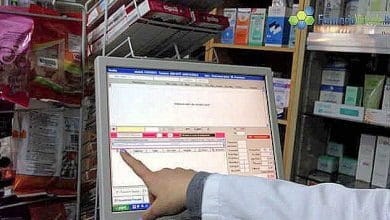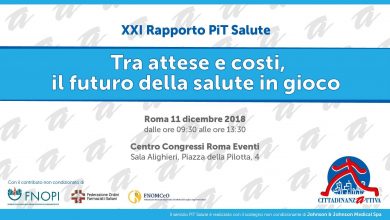
Contracted pharmaceuticals fell by 3.4% (after a collapse of 10% recorded 12 months earlier) which did not reach 9 billion and funding was reduced
By IBTimes Italia Editorial | 10/17/2014
 109 billion euros, the amount of national health expenditure in 2013 (data from the Court of Auditors in the 2014 report on public finance coordination), down by two billion compared to 2012. An expense equal to 7% of Gross Domestic Product, less than other countries such as France, Germany and Great Britain (between 9 and 8% of GDP). In 2003, many years before the crisis, he was at 8.4%
109 billion euros, the amount of national health expenditure in 2013 (data from the Court of Auditors in the 2014 report on public finance coordination), down by two billion compared to 2012. An expense equal to 7% of Gross Domestic Product, less than other countries such as France, Germany and Great Britain (between 9 and 8% of GDP). In 2003, many years before the crisis, he was at 8.4%
Personnel costs have been falling for years (35 billion in 2013), the cost of purchasing goods and services has fallen (another 35 billion), the costs of pharmaceuticals (+6% in one year) and medical devices (2.7% ). Pharmaceuticals with special agreements are down by 3.4% (after a collapse of the 10% recorded 12 months earlier) which does not reach 9 billion and funding has been reduced (-0.6). Revenue is also down (-0.9%). The public-private sector, "conventional and accredited" medicine accounts for over a third of health expenditure, percentage that has been growing over the years. In some Regions (Lombardy, Campania and Lazio) there is a decidedly higher share than the national average (over 42%).
Despite having reduced the health deficit over the years, the Health Service continues to spend more than it collects. Over the last few years, 9 Regions have had to activate Recovery Plans (Piedmont, Liguria, Lazio, Sardinia, Abruzzo, Puglia, Campania, Calabria and Sicily). Liguria and Sardinia have left the black list. But in 2013 the deficit was overall higher in the other 13 Regions where the Plan is not envisaged (890 against 746 million euro). In the Regions subjected to the Return we have witnessed plans for tears and blood (increases in co-payments, cutting of beds if not entire hospitals). Almost always linear cuts, which also affected the not many outstanding excellences.
Where there is public spending, in a country like Italy where bribes reign, there is corruption. Politicians, even at national level, have been convicted (Fitto and Del Turco) or are accused (Formigoni) for investigations that have to do with health care. It is no coincidence that the Regions themselves where possible phenomena linked to corruption are ascertained or emerge have been subjected to the Recovery Plan. And here 'waste' is not eliminated with linear cuts of billions of euros, but by legislating in the opposite direction (the Renzi government is absent on the issue) and by closing the doors to those who are accused or convicted. But politics has always been deaf to this obviousness.
Ultimately, health spending has been going down for years, we spend less than our European partners, and when we cut we often don't make a distinction between waste (which exists) and necessary spending. We do little or nothing about the hidden tax of corruption. How does all of this translate? That the LEA (Essential Levels of Assistance) are reduced.
In 2012 there were 7 Regions that did not guarantee these levels: Calabria (21 defaults recorded), Campania (19), Lazio (13), Molise (12), Abruzzo (10), Puglia (8), Sicily (5). Lin Campania it was rejected by the Ministry of Health in the sectors of hospital assistance, waiting lists, prevention, experimentation and management innovations, prosthetic assistance, transfusion activity, emergency-urgency. Lazio in hospital care, waiting lists, home and residential care, palliative care, rehabilitation.
Now the Renzi government it seems he wants to make the usual suspects pay part of the maneuver: billionaire cuts are being requested from the Regions and safeguard clauses are set up which provide for the direct intervention of the government on Healthcare if the Regions are unable to scrape together the 'due'.
But what should the Regions cut? If 4 to 6 billion are asked of those who have already given ten times as much in recent years, where will the regional governments go to raise cash? Renzi talks about waste. Which? If you know, tell me. Otherwise, to satisfy the spending, push the regional governments to increase local taxes (Padoan dixit) and to cut the cuttable on services (not just healthcare). Without forgetting the cut of the IRAP, the proceeds of which finance Healthcare at the local level. If we proceed in the Italian style, still linear cuts, the effects will be felt on the life and in the pockets of Italians.
Fewer beds, perhaps less staff, less assistance for the elderly and disabled, an increase in tickets. A further lowering of quality, which over the years has fueled the phenomenon of healthcare mobility, especially from the South. The primary deficit of health expenditure has been drastically reduced over the years, however affecting the Levels of Assistance. Now, if a new rain of billions is requested, it will touch the living flesh of the System.
Before the advent of the Renzi government, the Minister of Health Lorenzin (confirmed by the current premier) explained to Only 24 Hours: “Since 2010, 25 billion have been cut and the largest cuts, after Monti's spending, will arrive in the next three years and will continue to grow. We cannot go further, it would be unsustainable“. But do they talk to each other in the government?





